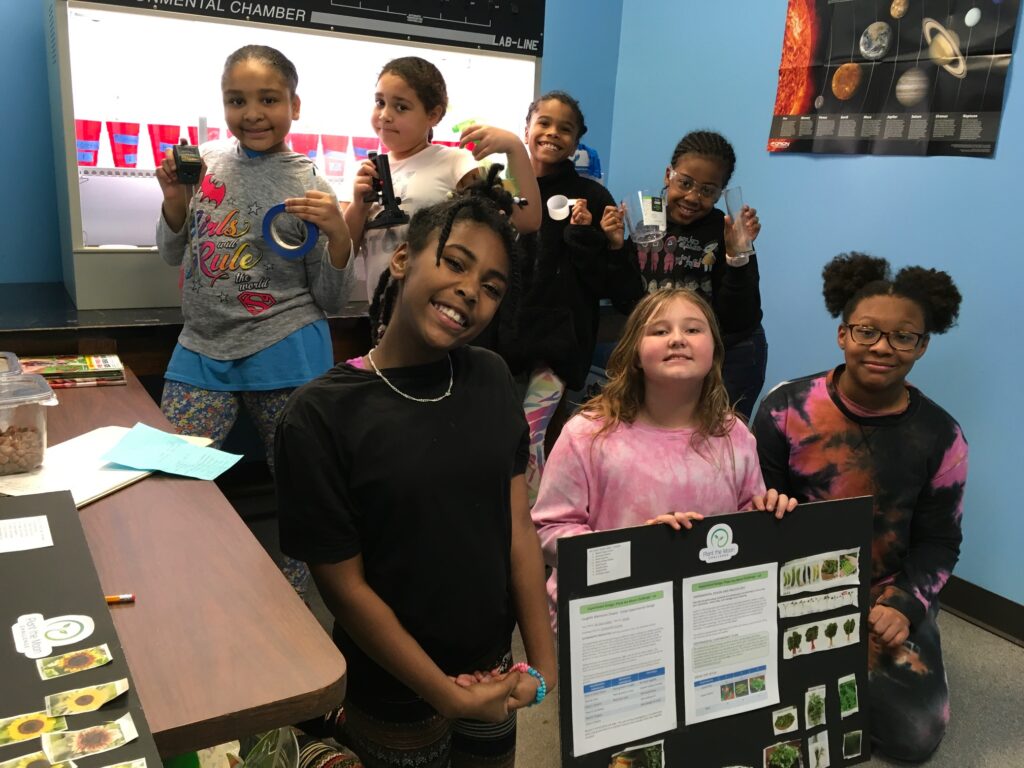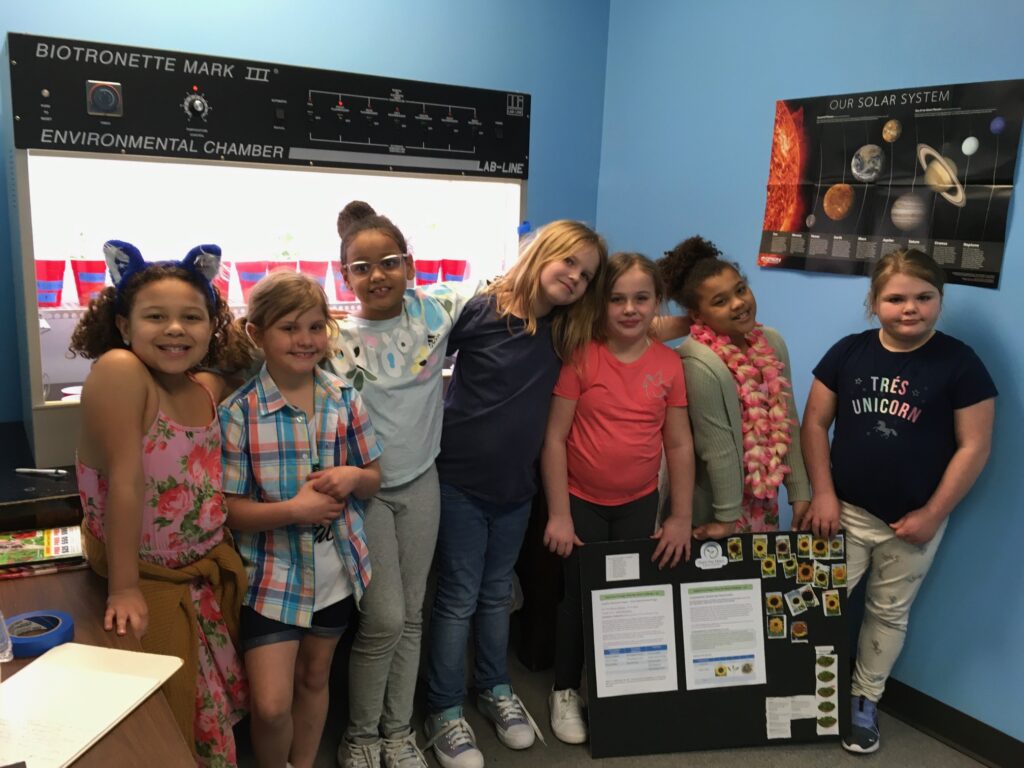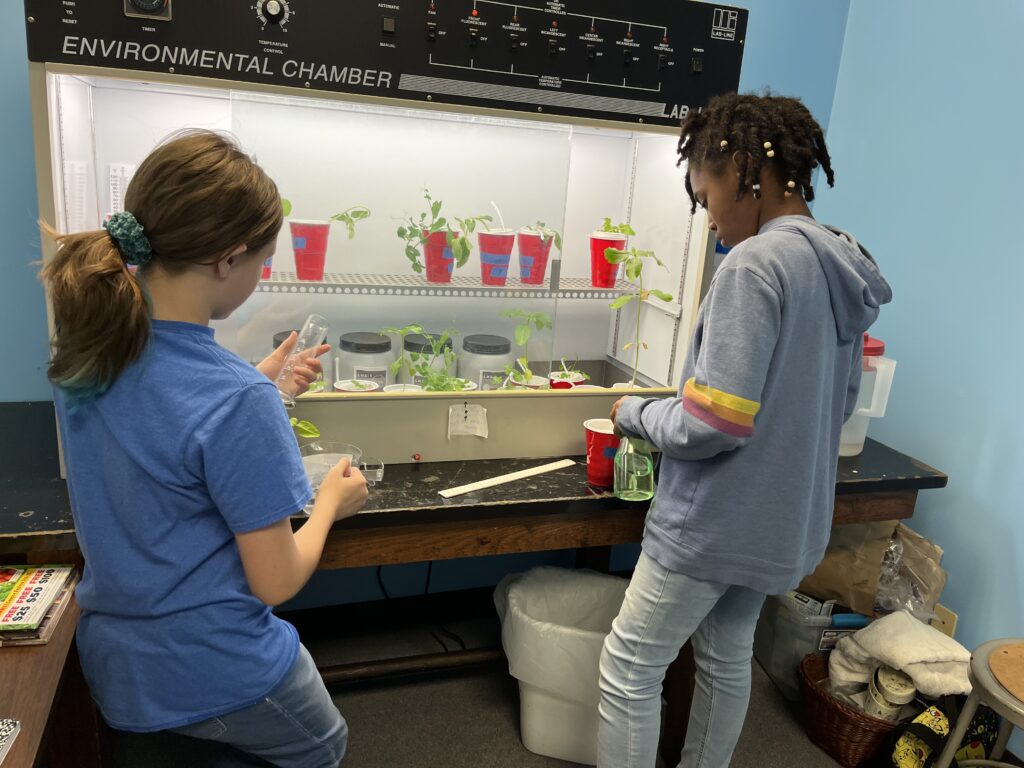Second through fourth grade girls in Girl Scout Troop #10467 completed two plant growth research projects to identify plants best suited for a future lunar habitat. The Brownie and Junior Scouts based at the Laughlin Memorial Chapel afterschool program are part of an international science competition called Plant the Moon Challenge, which is a global science learning activity to see who can grow the best crops using lunar regolith simulant.

The Scout investigations were designed to explore how NASA astronauts may be able to use lunar regolith (it’s not referred to as soil because it has no nutrient value and contains no organic material—it’s Moon dirt!) in combination with other materials to grow food. The Laughlin Girl Scouts grew six different types of plants and have identified four plant varieties that they recommend the NASA Artemis Program should try to grow in their future Moon Base gardens.
Dr. Laurie Ruberg, troop leader for Girl Scout Troop #10467 and West Virginia state coordinator for the Space Grant Enhanced Plant the Moon Challenge reports that the scouts have learned a lot about plant growth and caring for plants because of their participation in this project.
“We have a mixed group of nine Brownies and eight Juniors in our Laughlin Chapel troop, so we formed two elementary level investigative teams,” Ruberg explains. “The Brownie team experiment includes sunflower, arugula, and radish plants. The Junior team experiment focused on Swiss chard, peas, and cilantro plants. While the troop split into two teams, the girls have worked together to take care of all the plants. The Junior Scouts have helped the younger Brownie Scouts with their weekly plant growth measurements and watering activities.”

The Plant the Moon Challenge is a time-bound project. The Girl Scouts had to conduct their research, design, planting, monitoring, data collection, analysis, and reporting within the required start and end dates. Both teams will be submitting their final project reports by April 21, 2023. Both teams have followed the guidelines provided by the Plant the Moon Challenge organized by the Institute for Competition Sciences. The two kits purchased for the Laughlin Chapel Brownie and Junior teams’ participation in this competition were provided by the NASA West Virginia Space Grant Consortium, which received funding for this state-wide project from the six state NASA grant Space Grant K-12 Inclusiveness and Diversity in STEM (SG KIDS).

Dr. Melanie Page, director of the NASA WV Space Grant Consortium, explains that 72 teams from West Virginia schools and organizations serving diverse populations of traditionally underserved and underrepresented middle and high school students are participating in a six-state regional space grant enhanced Plant the Moon Challenge program. This award enables West Virginia students to have the same hands-on STEM opportunities as students in better-resourced states while offering teachers professional development support so they can more easily incorporate the Plant the Moon Challenge into their classroom STEM activities.
While the Laughlin Chapel Girl Scouts elementary age teams and are not officially part of the SG KIDS program, the WV Space Grant program has included the afterschool scouting group as one of the 79 West Virginia teams participating in the global Plant the Moon Challenge competition.
“This is a great opportunity for Laughlin Chapel girls to experience science in an out-of-school environment that allows them to see science as challenging, but also fun and a team-oriented activity” observes Martha Wright, executive director of Laughlin Memorial Chapel afterschool programs.
“While many our followers are anxious to know which plants Girl Scout Troop #10467 found to be most likely to thrive in a lunar base garden,” Ruberg says, “a public announcement describing the Brownie and Junior Scouts results will have to wait until after the Scout investigative reports have been reviewed as entries in the Plant the Moon Challenge global competition.”
